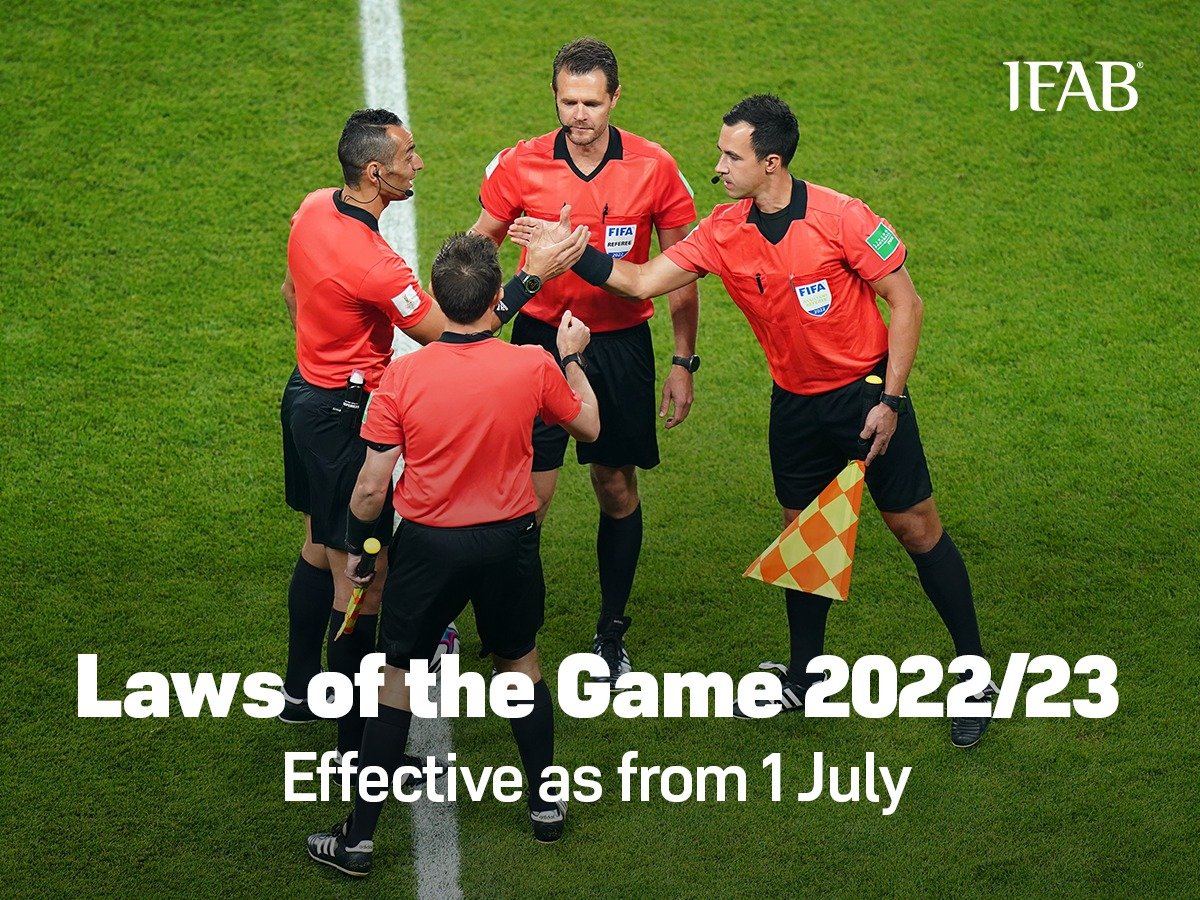IFAB new rules announced 2022/23
IFAB has released their latest set of laws of the game for the 2022/23 season. The main headline is the permanent inclusion of 5 substitutes, which we’ve talked about previously. There were a few other headline announcements outside of the law changes including the go-ahead for body cam trials for referees.
REFSIX has analysed these changes and produced a quick summary below so you don’t have to wade through every page to find out what these changes mean for referees.
5 substitutes
Law 3 – The Players
- The temporary amendment giving ‘top’ competitions the option of allowing teams to use up to five substitutes (with limited substitution opportunities) becomes part of Law 3
- Competition rules may now allow a maximum of fifteen substitutes to be named
During the pandemic IFAB temporarily allowed 5 substitutes to be used to protect players. This has clearly been successful and was welcomed by top clubs with busy schedules. The 5 substitutes will be allowed within 3 ‘substitution opportunities’ or breaks in play. The number of substitutes named on the bench has been increased to facilitate this rule change to 15. For referees, this change will make it more difficult to manage substations with a longer team sheet and more match admin. REFSIX has the answer - we allow referees to manage substitutions with ease and the flexibility to add more to the team sheets as needed.
Start and restart of play
Law 8 – The Start and Restart of Play
- Clarification that the referee tosses the coin to determine the ‘ends’ and kick-off
This one is mainly a technicality and clarification rather than a full-blown law change. Most of you will be taking the coin toss already, but this change makes it explicit the referee must do this.
Penalty kicks to end a game
Law 10 – Determining the Outcome of a Match
- Clarification that a team official may be cautioned or sent off during kicks from the penalty mark
Referees now have the power to caution or send off team officials during kicks from the penalty mark at the end of the game. Penalities are always an emotional way to end a game and can be a tense occasion. We think this is a sensible clarification that helps protect referees from abuse and gives them another tool to control the game in its dying moments.
Goalkeeper handball
- Clarification about handball offences by the goalkeeper in their own penalty area
Another clarification rather than a full-blown rule change. Looking at the DOGSO (denied opposition goal scoring opportunity) section of rule 12, it states that a player can be sent off if they handle the ball and deny a goal in the process. However, for goalkeepers, this is not the case, as they are allowed to handle the ball in their area.
Misconduct off the field of play
- Clarification about the position of a free kick awarded when a player leaves the field of play without the referee’s permission and then commits an offence against an outside agent
This rule change ensures that free kicks awarded when a player leaves the field without permission are taken at the point where the player leaves the field.
Goalkeeper position during a penalty
- Clarification about the position of the goalkeeper before and when a penalty kick is taken
The law previously didn’t clarify that standing behind the line was not an offence, as long as one foot was on the line. The advice here is to tell goalkeepers to stay on the line to avoid a mishap. Standing fully in front or behind the line isn’t acceptable and is against the laws of the game.
And that’s it! We think these law changes make sense and add clarification in a few grey areas. If you want to have a look at the full document, check out the IFAB website for more information.
Our app follows the latest version of the laws of the game so you don’t have to worry when giving out cards. Give REFSIX a go by downloading on the App Store or Google Play.

